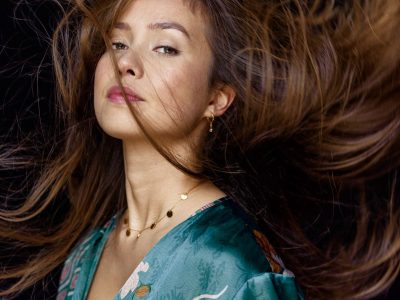根據聯合國兒童基金會(The United Nations Children's Fund,簡稱UNICEF)於2011年提出的調查指出,在宏都拉斯女性佔幫派人數約20%。這些幫派被許多年輕人認為是逃離暴力與避免落得無家可歸的庇蔭所,當地內戰持續了十年之久,有很大部分都是受到這些幫派的影響。
許多女性相信隸屬於幫派會庇蔭她們、在日常生活中比較不會遭受暴力,且可以讓自己更強大而有力量能抵抗周遭的侵略,這通常是幫派給予的承諾。薩爾瓦多對於女性而言是個危險的國家。根據非營利組織薩爾瓦多女性和平組織(Organisation of Salvadoran Women for Peace,簡稱ORMUSA)的暴力情形觀測顯示,在過去六年有2,521名女性被殺害,平均一年有420名受害者。不幸的是,由於該區毒品非法交易導致的暴力事件猖獗,此統計數據將持續上升。
非營利組織國際和平(Interpeace)《The Violent and the Violated》報告點出使青年加入幫派的因素:「極度貧窮、性侵、童年被虐、休學、輕易取得武器與毒品,以及,每個案例皆在被幫派控制且充斥暴力的社區長大。」
洞悉犯罪(InSight Crime)網站也分析了女性在這些區域會面臨的問題,並且強調:
A partir de 2012, El Salvador registró la tasa de feminicidios más alta del mundo. Según el ex ministro de seguridad del país, el aumento de los feminicidios coincidió con la creciente incorporación de las mujeres a las pandillas. En Honduras, especialistas en temas de género informaron en 2010 que las novias y las madres de los pandilleros estaban siendo asesinadas cada vez más en actos de venganza.
Since 2012, El Salvador has registered the highest level of femicides in the world. According to the ex-minister for security, the increase in the number of women murdered has coincided with the growing number of women joining gangs. Specialists in gender issues stated that in Honduras in 2010 the wives and girlfriends of the gang members were increasingly being murdered in acts of revenge.
薩爾瓦多自2012年起,已成為全球女性遭殺害人數最高的國家。據前國家安全部長表示,女性被謀殺的成長人數,已等於女性加入幫派的成長人數。性別專家則指出,宏都拉斯在2010年時,幫派成員的妻子與女朋友因捲入冤家尋仇而喪命的人數增加。
從女朋友到幫派成員
貧窮、結構性暴力及邊緣化是男性與女性加入幫派的主因。然而,社會卻較容易將女性所遭受的暴力視為常態並接受這樣的情況。女性加入幫派其他常見的理由包括:有暴力傾向或已是幫派成員的伴侶,或是想要確保自己外出時不受可能的強暴威脅。
西班牙語報《每日新聞》(La Vanguardia)採訪了薩爾瓦多最恐怖幫派之一的Mara Salvatrucha(MS-13)幫派成員Lucía Pérez,她指出貧窮、周圍籠罩暴力使她進入幫派的世界,以及她如何贏得幫派的敬重:
Yo me gané el sitio dentro de las filas. Era ruda y valiente. En general, a las mujeres nos toca hacer casi lo mismo que a los hombres: robar, vender drogas, armas, organizar algún secuestro y asesinar, claro […] En el barrio era parte de la rutina, de la forma de socializar, de sobrevivir. A mí nadie me dijo que era bueno o era malo. A los 12 años aprendí a ser una asesina, pensaba que era la mejor forma de defenderte, de ser del grupo fuerte y no del débil.
I won a place in one of the gangs. I was brave and tough. In general, women have to do almost the same things as the men: steal, sell drugs and weapons, organise kidnappings, and kill of course… In the neighbourhood it was part of our routine, how we socialised and survived. Nobody ever told me it was good or bad. At the age of 12 I learned how to be a killer, and I thought it was the best way that people could defend themselves, by being on the strong side rather than the weak one.
我在幫派贏得地位,我既勇敢又剽悍。一般來說,女人必須和男人做一樣的事情:偷竊、販賣毒品跟武器、計畫綁架、當然還有殺戮。這就是我們如何維持社交及生存,我們的日常。沒有人告訴過我這是好還壞。我在12歲時學會如何當一個殺手,而我認為比起弱者,寧可當個強者,這就是保護自己最好的辦法。
Lucía的故事也透露出要離開一個幫派有多麼困難,不僅僅是因為幫規禁止成員退出,更因為身為一個幫派成員在外表上所帶來的改變及伴隨的記錄:
[Yo] estaba tatuada y [con] eso todo el mundo sabe que es por que perteneces a una Mara. [Además…] la policía me había detenido varias veces, y con estos antecedentes nadie te da trabajo. Un día, me encontré que no tenía pañales para mi segunda bebé, que apenas tenía una semana. Le pedí dinero a su papá y éste me obligó a que lo acompañara a asaltar la casa de una anciana y [ahí] nos detuvieron.
I was tattooed, and this lets everyone know that you are part of a gang. The police had also caught me several times, and no one will give you a job when you have that sort of background. One day, I realised that I had no more nappies for my second baby, who was only a week old. I asked her father for money, and he made me come with him to burgle an old woman, and we were caught.
我刺青了,刺青讓大家知道我是幫派的一份子。警察也抓過我幾次,這樣的背景使得沒有人會給我工作機會。有一天,我發現我已沒有尿布給我第二個小孩,她才一週大。我跟孩子的爸要錢,他要我和他一起闖進一個老太太家偷錢,然後我們就被抓了。
一名中學老師在專注於新聞及評論的Oriente al Día部落格上發布的一個聲明,表達他對年輕人與幫派之間的關係的看法,以及幫派如何滲透至不同地方。有一些情況是,女孩成為幫派成員的女友,即jainas(西班牙俗語:女朋友),還有一些情況是,她們本身成為幫派成員:
El reclutamiento de mujeres es primordial en la mara, ya que estas ayudan a esconder droga, recoger la renta e incluso asesinar a miembros de la mara rival […] Las jainas son mucho más peligrosas que las mismas mareras. Nadie puede tocarlas, ni verlas. Ellas tienen que ser leales a su marido para no perder este status dentro de la mara, y la vida.
Recruiting women is essential for gangs, as they help to sell drugs, collect income and even murder members of the rival gang… The girlfriends are much more dangerous than the female gang members. No one is allowed to touch them, or even see them. They have to be loyal to their husbands so that they never lose this status within the gang, and in their lives.
招募女人對於幫派是必須的。因為她們可以幫忙販賣毒品,收取收入,甚至殺害敵對幫派成員…。女朋友則較女性幫派成員更加危險,沒有人能碰她們,甚至看到她們。她們必須對她們的伴侶忠誠,才不會在幫派中失去這種地位,甚至性命。
加入與離開
最一開始,希望加入幫派的女人必須忍受被一些或全部的幫派成員強暴。現今,許多人得以在被強暴或被打之間做選擇,就像大部分的男性成員一樣。根據國際和平的報告,大部分的女性會選擇後者:對她們來說,承受毆打成為贏得尊重的一種形式,並且證明她們與男人一樣強壯。
離開幫派並非常見之事,因為一旦加入幫派就是一輩子的事。在2009年記者Andrés Martinez為西班牙新聞網站Soitu.es(現已解散)撰寫的一文中,前幫派成員「小一」解釋進入薩爾瓦多最大幫派之一的「The 18」是一個無法回頭的決定:
Ingresar en una mara te marca de por vida, y en el caso que nos ocupa de forma literal: un 18 tatuado en su cara le recuerda cada vez que se mira al espejo que hace tiempo tomó una decisión sin marcha atrás […] Hoy se ha convertido en su castigo, en el responsable de que no pueda salir a la calle. […] Si la ve la policía, seguramente la detengan. Si se le ocurriese borrarse el tatuaje, los '18’ podrían sentirse ofendidos, entenderlo como un rechazo a la mara, y eso se castiga.
Joining a gang marks you for life, literally: the '18’ tattooed on your face reminds you every time you look in the mirror that you made a decision that's impossible to back out of… That becomes your punishment, meaning you can't go out on the streets… If you were seen by the police, you'd be arrested. If you decided to remove the tattoo, ‘The 18′ could become offended, taking it as a rejection of the gang, and they would punish you.
加入幫派會在你的人生留下烙印。首先,你臉上就得刺上「18」,每當你看著鏡子,它就提醒你做了一個無法回頭的決定。這變成了你的懲罰,也代表了你無法上街,如果你被警察看到,就會被逮捕。然而,若你決定消除刺青,「The 18」將之視為對幫派的拒絕、侵犯,他們將會處罰你。
幫派結構幾乎可被視為較暴力版本的大男人主義。薩爾瓦多聖卡洛斯大學(Simeón Cañas University)和公共意見研究所(University Institute of Public Opinion)所拍攝的紀錄片《Segundos en el aire》(Seconds in the air)指出,父權體制的幫派文化反應了薩爾瓦多社會普遍上就是:
Es un grupo de hombres, configurado por hombres, pensado por hombres y diseñado por hombres, en el que las mujeres son minoría cuantitativa, y en el que no existen razones para creer [… están] todos los estereotipos, prejuicios, desbalances y desigualdades entre hombres y mujeres que prevalecen en la patriarcal sociedad salvadoreña […]. De hecho, el machismo de la pandilla es una réplica, en versión micro, del extenso patriarcado salvadoreño.
It's a group of men, run by men, planned by men and designed by men. Women are the minority, and there is no reason to believe all the stereotypes, prejudices, imbalances and inequalities that prevail in the patriarchal Salvadoran society aren't there. In fact, misogyny in gangs is a microcosm of widespread Salvadoran patriarchy.
是一個男人的群體,由男人經營、計畫及設計。女人是弱勢族群你不能否認所有刻板印象、偏見、不平衡及父權體制下社會所導致的不平等確實存在。事實上,在幫派中的仇女現象,即是薩爾瓦多父權社會下的縮影。
譯者:Stella Peng
校對:Nelly

![La presencia de las mujeres en las maras de centroamérica crece y su importancia, tanto dentro como fuera de los grupos es crucial para los procesos de pacificación. En la imagen, una mujer pandillera de El Salvador con los tatuajes que distinguen a los miembros de las maras. Fotografía de The Guardian [seudónimo del autor] publicada en el blog Oriente al Día y usada con autorización.](https://es.globalvoices.org/wp-content/uploads/2015/11/mareras-pandilleras-el-salvador-800x450.jpg)





